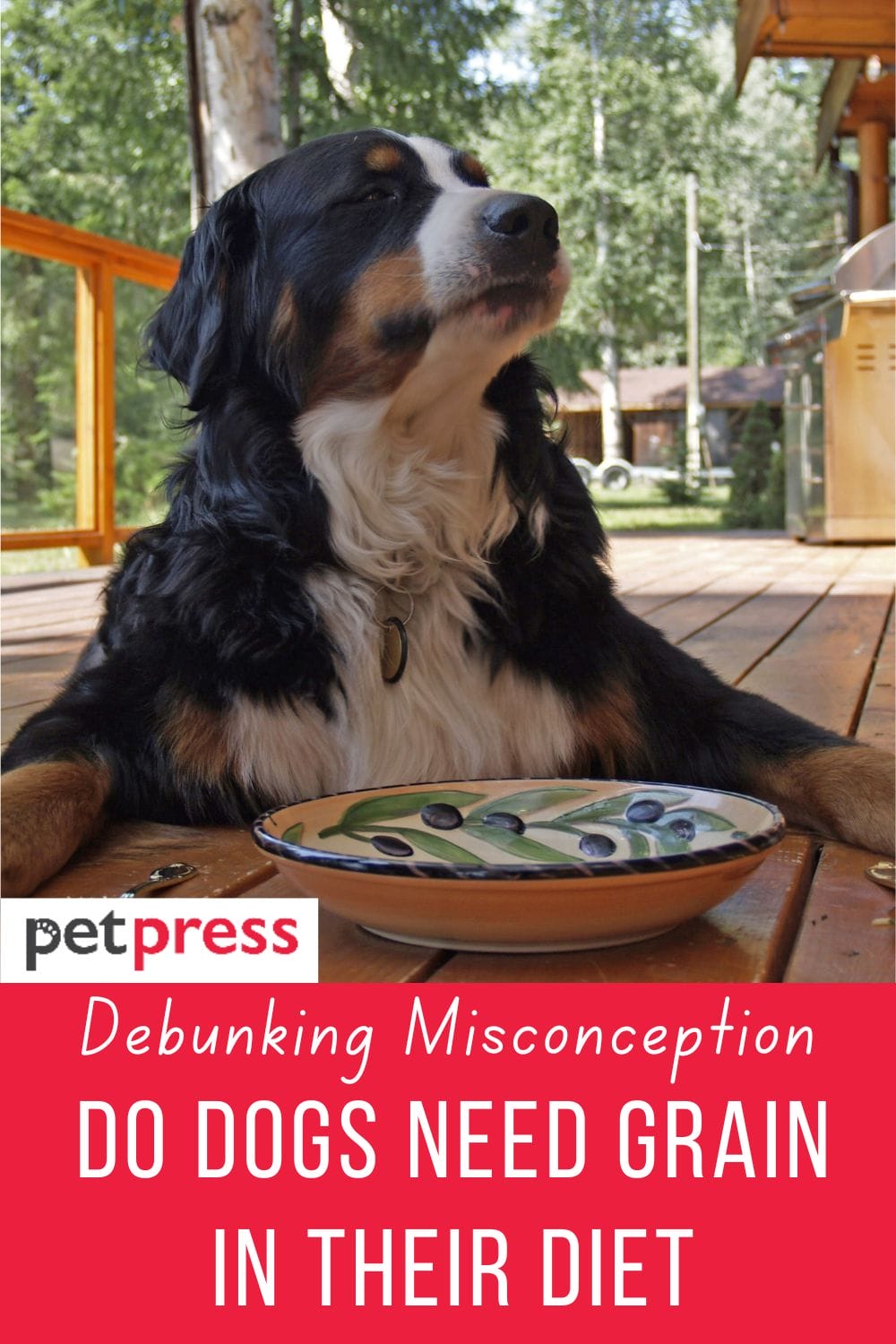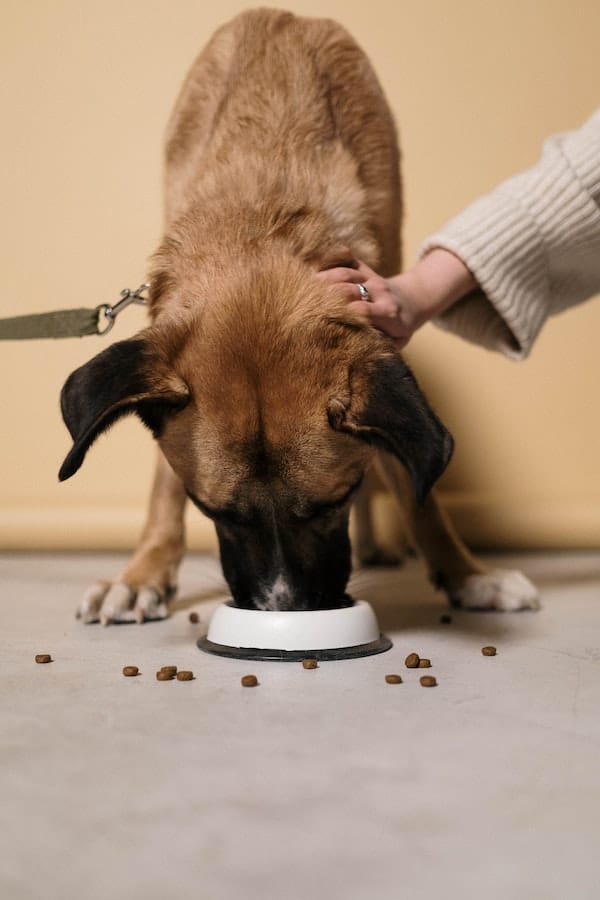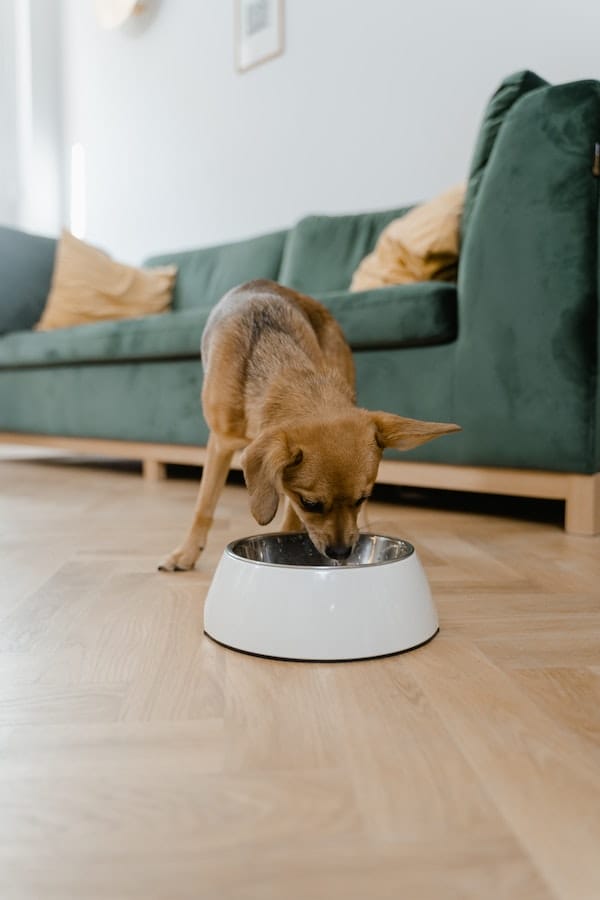
When it comes to nourishing our beloved furry friends, there’s often a haze of uncertainty encircling the topic of including grains in their diet.
Pervasive misconceptions abound, leaving dog owners pondering: Is it truly necessary to incorporate grains into your dog’s meals?
In this article, we’ll delve into the realm of canine nutrition, dispel the myths that swirl around grains, and empower you to make well-informed choices about your pet’s dietary needs.
Misconceptions About Grains in Dog Diets
Before we answer the burning question of whether your dog needs grain, let’s address some common misconceptions about grains in canine nutrition:
Allergies
There’s a prevailing notion that grains shoulder the blame for allergies in dogs, but it’s vital to set the record straight.
While it’s true that some dogs may have grain allergies, grains are far from being the sole culprits behind allergic reactions.
Dog allergies can originate from a myriad of sources, including the proteins and other ingredients nestled in their diet.
It’s crucial for dog owners to grasp that grains are merely one piece of the puzzle when it comes to potential allergy triggers for our beloved four-legged companions.
Digestibility
In contrast to commonly held beliefs, many grains can be digested by dogs without stirring up any digestive turmoil.
In fact, certain grains, such as rice and oats, are recognized for being gentle on canine stomachs and offering valuable nutrients.
The key to unlocking their digestibility lies in the selection of high-quality dog food that thoughtfully incorporates grains and prioritizes their proper digestion.
This should lay to rest the misconception that all grains are harsh on a dog’s digestive system and underscores the paramount importance of evaluating the overall quality of their diet.
Carbohydrates
Dogs fall under the category of omnivores, endowing them with the capacity to extract energy from carbohydrates.
Grains indeed stand as a dependable source of energy when proportionally integrated into their diet.
The crux here is to strike an equilibrium and opt for dog food that integrates grains judiciously, ensuring they contribute to a wholesome energy supply for your cherished furry companion.
Grasping this facet of a dog’s dietary requirements empowers pet owners to make astute choices when it comes to their canine friend’s nutrition.

Does Your Dog Need Grain?
Now, let’s get to the heart of the matter: Does your dog need grain in their diet?
The answer depends on various factors, including your dog’s individual needs and any specific dietary requirements. Here are some things to consider:
Health conditions
When it comes to shaping your dog’s diet, it’s of utmost importance to give due regard to their individual health conditions.
For instance, if your steadfast companion grapples with allergies or sensitivities, you might contemplate the idea of shifting towards a grain-free diet.
However, it’s crucial to understand that this is not a decision to be taken lightly.
Seeking counsel from your trusted veterinarian becomes an absolute necessity.
Their extensive knowledge and expertise empower them to offer tailored recommendations that align precisely with your dog’s unique health circumstances.
Nutritional balance
Grains contribute significantly to the delivery of vital nutrients in your dog’s diet, including the all-important fiber and carbohydrates.
If the notion of embracing a grain-free diet has entered your considerations, it’s of utmost importance to ensure that this dietary shift maintains a harmonious nutritional equilibrium.
This entails the inclusion of alternative ingredients that can effectively compensate for the absence of grains.
Achieving this balance stands as a linchpin in preserving your dog’s holistic health.
It underscores the significance of meticulously inspecting the ingredients list on their food packaging to ensure the provision of a well-rounded diet.
Activity level
Your canine companion’s activity level and age are pivotal factors that should wield considerable influence in the decision-making process surrounding their diet.
Dogs with high activity levels often reap substantial benefits from the energy boost that grains provide.
These carbohydrates act as a reliable source of fuel for their dynamic lifestyles.
On the flip side, older dogs or those leading a more sedentary existence may require fewer carbohydrates in their dietary intake.
Adjusting the grain component of your dog’s diet to harmonize with their specific activity level and age is a fundamental aspect of tailoring their nutrition to align with their individual needs.

Things to Consider When Choosing a Dog Food with or Without Grain
When selecting the right dog food, whether it contains grain or not, here are some key factors to keep in mind:
Read labels
One of the most fundamental steps in ensuring your dog’s nutrition is to diligently inspect the ingredient labels on their food.
Take the time to truly comprehend what constitutes the sustenance you provide for your furry companion.
Be vigilant in seeking out high-quality ingredients that actively contribute to their overall health and well-being.
Equally significant is the practice of avoiding fillers, which may often lack nutritional value and might not be in the best interest of your pet’s dietary requirements.
Consult your vet
The treasure trove of knowledge and expertise possessed by your veterinarian emerges as an invaluable resource when it comes to customizing your dog’s diet.
Veterinarians are equipped with the insights needed to offer guidance that is finely calibrated to meet your dog’s specific needs.
Whether it’s unraveling the suitability of grains for your furry friend or extending recommendations for particular dietary requirements, the advice from your veterinarian serves as a guiding compass, steering you toward the most appropriate choices for your pet’s health.
Monitor your dog
Your dog’s well-being serves as an authentic reflection of their diet, and it is incumbent upon you to be a vigilant observer of their health and happiness.
Pay meticulous attention to their energy levels, overall health, and any alterations in behavior or physical condition.
This vigilant monitoring allows you to gauge the extent to which their current diet aligns with their well-being.
Based on their responses to their dietary regimen, you can make judicious decisions about whether adjustments are warranted to optimize their diet in accordance with their individual requirements.
Conclusion
In wrapping up, the matter of whether dogs require grains in their diet isn’t a simple, one-size-fits-all equation.
It’s imperative to unravel common misconceptions and arrive at well-informed decisions regarding your pet’s nutritional requirements.
By taking into account factors like your dog’s health, age, and activity level, seeking guidance from your trusted veterinarian, and carefully scrutinizing food labels, you can confidently select the most suitable diet tailored to your beloved furry companion’s specific needs.
FAQs
While some dogs may be allergic to grains, they are not the sole source of allergies. Protein sources and other ingredients can also trigger allergies.
Not necessarily. The healthiness of a diet depends on its overall composition and how well it meets your dog’s specific nutritional requirements.
Common grains in dog food include rice, oats, barley, and wheat.
Yes, it’s always advisable to consult your veterinarian before making significant dietary changes for your dog. They can provide personalized recommendations based on your dog’s health and needs.
- Does Cat Litter Melt Ice? The Complete Guide to Winter Safety - January 30, 2026
- Happy Tail Dogs: Understanding This Common Canine Condition - January 29, 2026
- How Cold Can Outdoor Cats Handle? Feline Winter Safety - January 27, 2026


GIPHY App Key not set. Please check settings